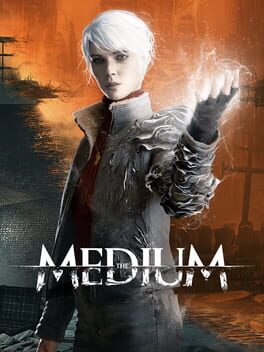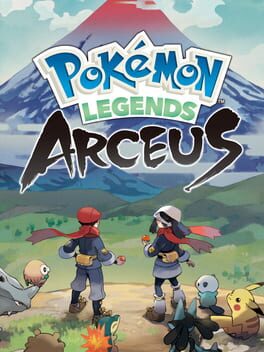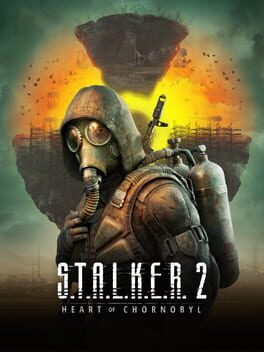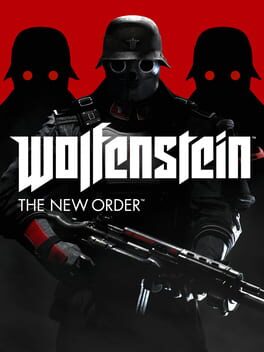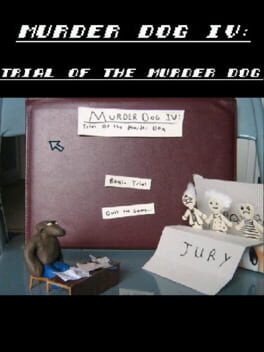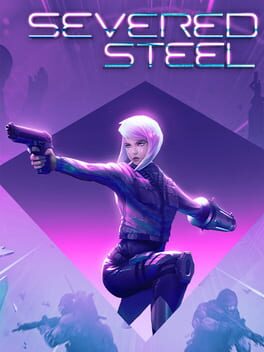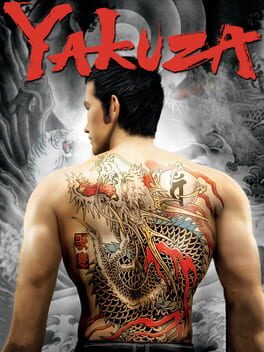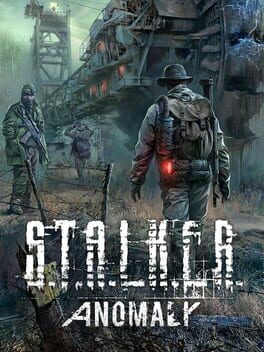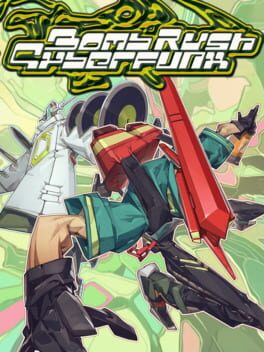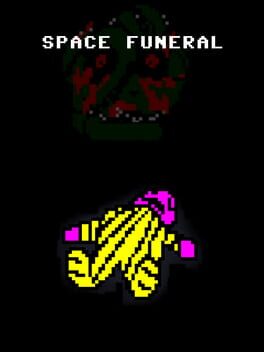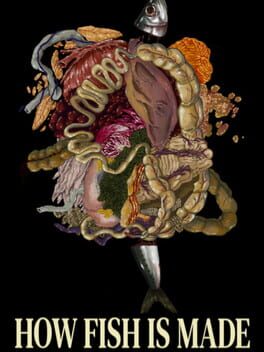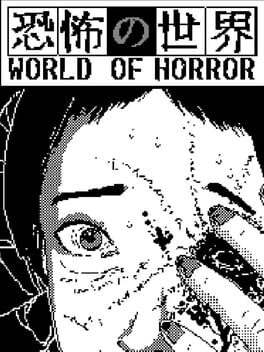Jellyghost
2021
Terrible appropriative studio copying other artists' work and claiming it as their own while wildly misinterpreting the meaning of its inspirations.
To further my anger towards this game, it does a poor, even harmful job at portraying mental illness, so far as to demonize victims of depression and anxiety as though they're "unfixable," and their demons are an inconvenience and impediment to those around them.
The emotional intellect is completely missing, and the storytelling is amateurish and immature, blatantly favoring style over actual substance and subliminality.
To further my anger towards this game, it does a poor, even harmful job at portraying mental illness, so far as to demonize victims of depression and anxiety as though they're "unfixable," and their demons are an inconvenience and impediment to those around them.
The emotional intellect is completely missing, and the storytelling is amateurish and immature, blatantly favoring style over actual substance and subliminality.
Despite the fact that it's PRETTY APPARENT the company isn't paying their employees very well (or else the team is just small and rushed), they knocked it out of the park with gameplay on this one.
The jank is good, it's fine, I don't care about the graphics, that's just a byproduct of poor management. The game itself rules.
The jank is good, it's fine, I don't care about the graphics, that's just a byproduct of poor management. The game itself rules.
2001
I ended up playing through this entirely on a day off. The first time I beat it was back in the winter of 2010 or so, an incredibly cold and lonely person sitting on my creaky bed trying not to cry over the ending.
I'm maybe less lonely now, a little warmer, but I can easily say this game left an even bigger impact now than it did the first time.
I'm maybe less lonely now, a little warmer, but I can easily say this game left an even bigger impact now than it did the first time.
This review was written before the game released
edit: I know they technically took back the crypto shit, but that's not changing my perception of the studio and their ideals.
Really cool how they're bringing the immersion to a new level by contributing to a REAL LIFE environmental disaster. Fuck NFTs.
The good news is that now I have $60 to spend on indie games.
Really cool how they're bringing the immersion to a new level by contributing to a REAL LIFE environmental disaster. Fuck NFTs.
The good news is that now I have $60 to spend on indie games.
Machinegames understands action, how to make it mean something more than a spectacle of masculinity, how to apply it wholeheartedly into the spirit of defiance in the face of fascism.
Historically, BJ is a purposefully flat character, rendered with no purpose other than to be a face on the other side of a gun. TNO does not deny this, but instead gives him a heart to match his muscle, a righteous care for the people he represents. Everything goes right for him, in classic action movie style, but this untouchable force he represents is not just for the sake of mechanical fun, but a symbol of standing up to impossible odds and sparking hope when it feels like all is lost. This one-man army is a revolution, a modern day golem, a pinnacle of love and freedom and hope. Wolfenstein may depict a bleak world, but it knows that fascism cannot and will not last when opposed by even just one person, and it knows exactly how to make it feel good when you tear it all down with your bare hands.
Historically, BJ is a purposefully flat character, rendered with no purpose other than to be a face on the other side of a gun. TNO does not deny this, but instead gives him a heart to match his muscle, a righteous care for the people he represents. Everything goes right for him, in classic action movie style, but this untouchable force he represents is not just for the sake of mechanical fun, but a symbol of standing up to impossible odds and sparking hope when it feels like all is lost. This one-man army is a revolution, a modern day golem, a pinnacle of love and freedom and hope. Wolfenstein may depict a bleak world, but it knows that fascism cannot and will not last when opposed by even just one person, and it knows exactly how to make it feel good when you tear it all down with your bare hands.
2011
I admit not all the humor in Space Funeral hit me as hard as its contemporaries, but oh my god Murder Dog IV bridges the gap. I was simply not prepared for the masterful wordsmithing Thecatamites employs here, opening on "My Thirst For Blood Remains Voluminous" sets a high bar for dialogue that stays its ground for however many iterations of the trial you decide to play.
2021
I'm super bad at these kinds of games, but Severed Steel takes the mechanical-prestige begging-for-a-speedrun format and makes it bombastic enough to hold anyone's attention regardless of skill level. It's short, sweet, and doesn't ask you to play longer than you want to, but provides a few interesting reasons to go back - namely the Rogue Steel mode that adds a few arcadey touches to the main game that feel like the developers' excuse to keep experimenting with the format in a way that feels cohesive outside of the campaign.
I do feel a little bit like my enjoyment of any given level hinged more on how hard the soundtrack went than anything else, and I think that speaks to how integral the music is to this experience. There's some great stuff here, but when the beat dies down too much I start to lose some of the adrenaline and my flow breaks.
I do feel a little bit like my enjoyment of any given level hinged more on how hard the soundtrack went than anything else, and I think that speaks to how integral the music is to this experience. There's some great stuff here, but when the beat dies down too much I start to lose some of the adrenaline and my flow breaks.
2005
(Played via the Yakuza Restored undub, with original JP audio)
What a cool ass game. I was worried it'd drag by the midway point, but the encounters never got old and the side stories didn't feel like a waste of time, which is usually the fatal flaw for me in any game over 8 hours that feels like it's padding the story content out of embarrassment.
It tells a simple story, one that I'm always down to hear again, but with enough flair and characteristic charm to explode Millennium Tower. It's got the charm of a Kitano movie or a Yuasa substory mixed with the cheesiness of Metal Gear Rising, but it never compromises its emotional moments by being goofy.
My only gripe is with minor issues in the combat (specifically the floaty targeting mechanic that does not work exclusively when I need it to).
What a cool ass game. I was worried it'd drag by the midway point, but the encounters never got old and the side stories didn't feel like a waste of time, which is usually the fatal flaw for me in any game over 8 hours that feels like it's padding the story content out of embarrassment.
It tells a simple story, one that I'm always down to hear again, but with enough flair and characteristic charm to explode Millennium Tower. It's got the charm of a Kitano movie or a Yuasa substory mixed with the cheesiness of Metal Gear Rising, but it never compromises its emotional moments by being goofy.
My only gripe is with minor issues in the combat (specifically the floaty targeting mechanic that does not work exclusively when I need it to).
Pulled from my full retrospective: https://www.youtube.com/watch?v=aGd-vhg0AZE
S.T.A.L.K.E.R., as I’ve come to see - and more or less appreciate it, is an impressive waste of time. Everything it boasts, from the gunplay and the realism to the immersive systems and the atmospheric open world, is all just a space to exist in for however long you see fit, until you get bored with the loop and find something else to do. It presents a wild, open world full of infinite possibilities (of things to kill, or things that will kill you), and a list of mechanics and systems that you’re seemingly not supposed to understand without trial and error and frequent quick-saves. It requires a lot of time and patience and commitment, and I feel that I gave it the amount of time it deserved before giving my thoughts a three-year-deep conclusion.
S.T.A.L.K.E.R. (the game), is little more than an aesthetic, comparative to its genre peers. It implies a deeper message, but only through its proximity to these other works, considering its title and setting. What S.T.A.L.K.E.R. seems to aim for thematically is on par with Fallout’s frontier-fantasy; isn’t it mysterious and sexy to have full reign over this barren landscape that used to be a civilization? Isn’t it fun to think about returning to zero, carrying nothing but a backpack and a gun into the wide unknown? Here we’re shown less the effects of war on society, and more a wonderland for grizzled gun-toting men, survivors who are here for the same mechanical reason as the player - they like shooting things too. Inherently, as a piece of interactive media focused more on open, immersive mechanics than a linear story, it seems more interested in being a military simulation in a “cool setting” than a rumination on why that setting exists in the first place, much less what it symbolizes. It’s a reaction to the aesthetic trend of nuclear media, the allure of tragedy and the speculation around the effects of nuclear energy, and the inevitable horror genre tropes that fill in the gaps and begin to form the fear into something shiny and profitable.
“The zone” is often as beautiful as it is ugly and static, and I found myself getting enraptured by Anomaly’s weather effects and skyboxes as often as I was disappointed with the emptiness and ugliness of an area I thought I’d take the time and resources to explore. The world is also incredibly hostile to its inhabitants, in a way that pursues “realism,” but in the process loses track of why it exists at all. The openness is presented as a space of limitless opportunity, but for what? The answer, of course, is to “be a part of the world,” which is enacted through the game’s verbs by walking for a period of time, then shooting a gun, then walking somewhere else. This openness, also, provokes a classic form of open world burnout. You’re provided with so much to do (in the form of walking, shooting, and then picking things up) that you quickly lose yourself in the loop of trying to make your numbers go up (namely encumbrance, which translates to money). With a higher number (money), you can build up equipment that allows you to go further without having to reload a save after getting one-shot - or at the very least mortally wounded by anything you come across, or anything that (thanks to the immersive world design) comes after you. This is an expensive process, both for you as a player and “you” as a stalker, and will necessitate running back and forth across several maps doing fetch quests, finding filler items to sell (that might be useful, or might just have flavor text that alludes to being useful, we’ll never tell), and trying not to get encumbered.
I’ve done my time in the zone, I’ve lived in it for a period, explored its secrets, even if I haven’t “beaten” S.T.A.L.K.E.R. in whatever form it wants to be beaten. I will probably still think about it, maybe gratuitously return to it for a few hours, try and see if there’s anything else hidden in its world. In the end, maybe this version of the zone just isn’t for me, maybe I’ll never find what I want hiding somewhere deep inside it, and maybe it wasn’t ever meant to be any deeper than “just a game.” Given S.T.A.L.K.E.R. 2’s upcoming release, the developers’ lack of reservations about NFTs, and the series’ target fanbase of hunter-killers, maybe no zone will ever live up to the ruminative fantasy I keep in my head and heart. Perhaps Chernobyl’s exclusion zone is fated, ironically, to be a constant mystical battleground, an aesthetic backdrop for yet another survival shooter game, an untouched, unruled place full of limitless violent possibilities. In the meantime, in the real world, maybe we can continue to cope with the doors that cannot be closed behind us, and hopefully learn from our mistakes and our history of violence, and prevent such a prospective future from befalling us before we inevitably get another triple-A post-nuclear frontier survival experience for the cost of $70, a thousand layoffs, a handful of crunch hospitalizations, and our dignity as artists.
S.T.A.L.K.E.R., as I’ve come to see - and more or less appreciate it, is an impressive waste of time. Everything it boasts, from the gunplay and the realism to the immersive systems and the atmospheric open world, is all just a space to exist in for however long you see fit, until you get bored with the loop and find something else to do. It presents a wild, open world full of infinite possibilities (of things to kill, or things that will kill you), and a list of mechanics and systems that you’re seemingly not supposed to understand without trial and error and frequent quick-saves. It requires a lot of time and patience and commitment, and I feel that I gave it the amount of time it deserved before giving my thoughts a three-year-deep conclusion.
S.T.A.L.K.E.R. (the game), is little more than an aesthetic, comparative to its genre peers. It implies a deeper message, but only through its proximity to these other works, considering its title and setting. What S.T.A.L.K.E.R. seems to aim for thematically is on par with Fallout’s frontier-fantasy; isn’t it mysterious and sexy to have full reign over this barren landscape that used to be a civilization? Isn’t it fun to think about returning to zero, carrying nothing but a backpack and a gun into the wide unknown? Here we’re shown less the effects of war on society, and more a wonderland for grizzled gun-toting men, survivors who are here for the same mechanical reason as the player - they like shooting things too. Inherently, as a piece of interactive media focused more on open, immersive mechanics than a linear story, it seems more interested in being a military simulation in a “cool setting” than a rumination on why that setting exists in the first place, much less what it symbolizes. It’s a reaction to the aesthetic trend of nuclear media, the allure of tragedy and the speculation around the effects of nuclear energy, and the inevitable horror genre tropes that fill in the gaps and begin to form the fear into something shiny and profitable.
“The zone” is often as beautiful as it is ugly and static, and I found myself getting enraptured by Anomaly’s weather effects and skyboxes as often as I was disappointed with the emptiness and ugliness of an area I thought I’d take the time and resources to explore. The world is also incredibly hostile to its inhabitants, in a way that pursues “realism,” but in the process loses track of why it exists at all. The openness is presented as a space of limitless opportunity, but for what? The answer, of course, is to “be a part of the world,” which is enacted through the game’s verbs by walking for a period of time, then shooting a gun, then walking somewhere else. This openness, also, provokes a classic form of open world burnout. You’re provided with so much to do (in the form of walking, shooting, and then picking things up) that you quickly lose yourself in the loop of trying to make your numbers go up (namely encumbrance, which translates to money). With a higher number (money), you can build up equipment that allows you to go further without having to reload a save after getting one-shot - or at the very least mortally wounded by anything you come across, or anything that (thanks to the immersive world design) comes after you. This is an expensive process, both for you as a player and “you” as a stalker, and will necessitate running back and forth across several maps doing fetch quests, finding filler items to sell (that might be useful, or might just have flavor text that alludes to being useful, we’ll never tell), and trying not to get encumbered.
I’ve done my time in the zone, I’ve lived in it for a period, explored its secrets, even if I haven’t “beaten” S.T.A.L.K.E.R. in whatever form it wants to be beaten. I will probably still think about it, maybe gratuitously return to it for a few hours, try and see if there’s anything else hidden in its world. In the end, maybe this version of the zone just isn’t for me, maybe I’ll never find what I want hiding somewhere deep inside it, and maybe it wasn’t ever meant to be any deeper than “just a game.” Given S.T.A.L.K.E.R. 2’s upcoming release, the developers’ lack of reservations about NFTs, and the series’ target fanbase of hunter-killers, maybe no zone will ever live up to the ruminative fantasy I keep in my head and heart. Perhaps Chernobyl’s exclusion zone is fated, ironically, to be a constant mystical battleground, an aesthetic backdrop for yet another survival shooter game, an untouched, unruled place full of limitless violent possibilities. In the meantime, in the real world, maybe we can continue to cope with the doors that cannot be closed behind us, and hopefully learn from our mistakes and our history of violence, and prevent such a prospective future from befalling us before we inevitably get another triple-A post-nuclear frontier survival experience for the cost of $70, a thousand layoffs, a handful of crunch hospitalizations, and our dignity as artists.
2023
Bomb Rush Cyberfunk fills in radicalism where studio influence kept it out of Jet Set Radio. In a way, it's a perfect pairing with Umurangi Generation, and it's refreshing to see indies of this caliber not holding their punches in heavy conversations, especially post-2020 with the frightening relevance of police brutality, corporate/governmental indifference to global issues and the threat of fascism growing in that indifference.
BRC, like Umurangi, is a work wherein its imperfections are filled in by a pure and unabashed love for the medium and style it uses to speak its message and propagate its energy. It's angry in a way that more art should be, without ever making that anger its sole mechanical focus. The police showing up and ruining your combos informs this in the same way Umurangi docks you points for taking pictures of things the news outlets don't want you to. There's always someone trying to ruin your fun, take away your friends and freedom and artistic expression, but that doesn't stop you from having those bonds, even acting to solidify them further.
BRC, like Umurangi, is a work wherein its imperfections are filled in by a pure and unabashed love for the medium and style it uses to speak its message and propagate its energy. It's angry in a way that more art should be, without ever making that anger its sole mechanical focus. The police showing up and ruining your combos informs this in the same way Umurangi docks you points for taking pictures of things the news outlets don't want you to. There's always someone trying to ruin your fun, take away your friends and freedom and artistic expression, but that doesn't stop you from having those bonds, even acting to solidify them further.
2010
It's brief, has a banger soundtrack, and paved the way for some really important stuff later on. Definitely pairs perfectly with Franken, you can see where Splendidland took several direct inspirations and cleaned them up to fit its presentation and unique sense of humor.
I'll be checking out Thecatamites' other work posthaste, for sure!
I'll be checking out Thecatamites' other work posthaste, for sure!
2022
2020
World of Horror is spectacularly up my alley. It acts in place of the friend you meet who has a similar niche interest to you, and then you come to find that they're actually in way more deep than you thought somebody else could get, and before long you're bouncing between favorite Senritsu Kaiki File Kowasugi! and Kiyoshi Kurosawa movies like you've known each other for years.
World of Horror is an imperfect experience, the combat isn't terribly interesting and some of the mechanics fall flat for how much depth the game alludes to, and after a point it seems like you've started looping certain scenarios but haven't even touched a bunch of other ones. In the end, though, I don't really want to talk about what the game does wrong when it does so much right. Even if the formula gets old after a certain period, I think the time spent getting to that point is WELL worth the money and effort.
World of Horror is an imperfect experience, the combat isn't terribly interesting and some of the mechanics fall flat for how much depth the game alludes to, and after a point it seems like you've started looping certain scenarios but haven't even touched a bunch of other ones. In the end, though, I don't really want to talk about what the game does wrong when it does so much right. Even if the formula gets old after a certain period, I think the time spent getting to that point is WELL worth the money and effort.
2023
There's a lot to write about with Alan Wake II, especially considering that writing about this game requires writing about the first one, as well as Control and Max Payne to some extent. I wrote a decent amount in my newsletter, but that's PAID CONTENT BABY so here's the basics:
Narratively, it's a legacy piece for Remedy as much as a standalone story. It ties together so many things from the studio's history in such a satisfying way, and now that I've played through Max Payne, I'm wondering what they would've done differently here if Rockstar wasn't holding the rights to the IP. It's already pretty blatant that Alex Casey is Max Payne, at least to some extent, but I wonder if they'd go further if they still had full privileges to the character.
Mechanically, it surpasses the things that people thought were lacking from the first game. It flips between insidiously scary, deeply conspiratorial, and intently comedic at a moment's notice, and goes above and beyond to do so in a way that feels unlike anything you've seen before, and only possible through the medium it uses. This is probably the best case I've ever seen for a triple-A game being artistically driven and unashamed of being a game that's trying to say something instead of mimicking film to cheaply emulate an emotional experience.
Personally, it's an incredibly story about art and what it means to be an artist, especially one with an audience and an obligation towards that audience. What does consent mean in an artistic context, both in terms of your work being taken from you, and in terms of who and what you use as inspiration and means to create that work? What obligations do you have to yourself as a creator, to your health and to the people around you, and to your creations if they remain unfinished or unsatisfied?
It's imperfect, sure, but there's no way I can give it marks off for "having puzzles" or "the combat being hard sometimes" when this is something I'm going to be thinking about as often as I inevitably will be. I love these characters, I love this world, I love the implications of everything happening here, and I love that a game like this can exist. I'm beyond excited for whatever Remedy's going to do next, and forever from here on out.
Narratively, it's a legacy piece for Remedy as much as a standalone story. It ties together so many things from the studio's history in such a satisfying way, and now that I've played through Max Payne, I'm wondering what they would've done differently here if Rockstar wasn't holding the rights to the IP. It's already pretty blatant that Alex Casey is Max Payne, at least to some extent, but I wonder if they'd go further if they still had full privileges to the character.
Mechanically, it surpasses the things that people thought were lacking from the first game. It flips between insidiously scary, deeply conspiratorial, and intently comedic at a moment's notice, and goes above and beyond to do so in a way that feels unlike anything you've seen before, and only possible through the medium it uses. This is probably the best case I've ever seen for a triple-A game being artistically driven and unashamed of being a game that's trying to say something instead of mimicking film to cheaply emulate an emotional experience.
Personally, it's an incredibly story about art and what it means to be an artist, especially one with an audience and an obligation towards that audience. What does consent mean in an artistic context, both in terms of your work being taken from you, and in terms of who and what you use as inspiration and means to create that work? What obligations do you have to yourself as a creator, to your health and to the people around you, and to your creations if they remain unfinished or unsatisfied?
It's imperfect, sure, but there's no way I can give it marks off for "having puzzles" or "the combat being hard sometimes" when this is something I'm going to be thinking about as often as I inevitably will be. I love these characters, I love this world, I love the implications of everything happening here, and I love that a game like this can exist. I'm beyond excited for whatever Remedy's going to do next, and forever from here on out.
2010
I remember when this came out and the general response seemed to be that people thought it was a PG Silent Hill for XBOX kids, except it didn't hold up to any survival horror fans' standards because 1. there were no zombies, the enemies were just regular people who talked weird and were scared of light, hell some of the enemies were literally just floating objects. 2. Alan isn't a very likeable protagonist and none of the other characters are very compelling either, and I'm not sure many casual players made it far enough to get to the more interesting meta facets of the narrative.
Having played Control first, and admittedly mostly playing this one as a bridge to Alan Wake II, I'm actually a lot more interested in it as a build-up to Remedy's shared universe thing now that they've established themselves more. I can 100% see where someone would be confused playing this in 2010 and feeling like it's underbaked, but it's a lot more satisfying now that I know where they were going with this long-term, between the meta aspects and the anomalous entity narrative. I love the way the enemies seem to just compulsively braindump familiar phrases like the Hiss victims in Control, but people were definitely confused by that and probably thought it was some kind of comedy thing. I can even make a case for the bad dialogue, I think they just didn't ham it up enough that Alan wrote that shit himself. There are so many shitty references that Alan would totally write, down to the stupid FBI agent CRIMINALLY breaking the flow of dialogue every other sentence to insult Alan by calling him any other horror author's name he can think of.
It's cool, but it's still far from fantastic. Mechanically it leaves a lot to be desired, there are plenty of balancing issues that could have been solved by taking another run at the resource pools and taking out some of the combat padding. I also think they could have gone harder with the narrative to drive home what they were trying to do, especially to the XBOX audience that was mad this wasn't really trying to be a replacement for Playstation's survival horror exclusives.
Having played Control first, and admittedly mostly playing this one as a bridge to Alan Wake II, I'm actually a lot more interested in it as a build-up to Remedy's shared universe thing now that they've established themselves more. I can 100% see where someone would be confused playing this in 2010 and feeling like it's underbaked, but it's a lot more satisfying now that I know where they were going with this long-term, between the meta aspects and the anomalous entity narrative. I love the way the enemies seem to just compulsively braindump familiar phrases like the Hiss victims in Control, but people were definitely confused by that and probably thought it was some kind of comedy thing. I can even make a case for the bad dialogue, I think they just didn't ham it up enough that Alan wrote that shit himself. There are so many shitty references that Alan would totally write, down to the stupid FBI agent CRIMINALLY breaking the flow of dialogue every other sentence to insult Alan by calling him any other horror author's name he can think of.
It's cool, but it's still far from fantastic. Mechanically it leaves a lot to be desired, there are plenty of balancing issues that could have been solved by taking another run at the resource pools and taking out some of the combat padding. I also think they could have gone harder with the narrative to drive home what they were trying to do, especially to the XBOX audience that was mad this wasn't really trying to be a replacement for Playstation's survival horror exclusives.
